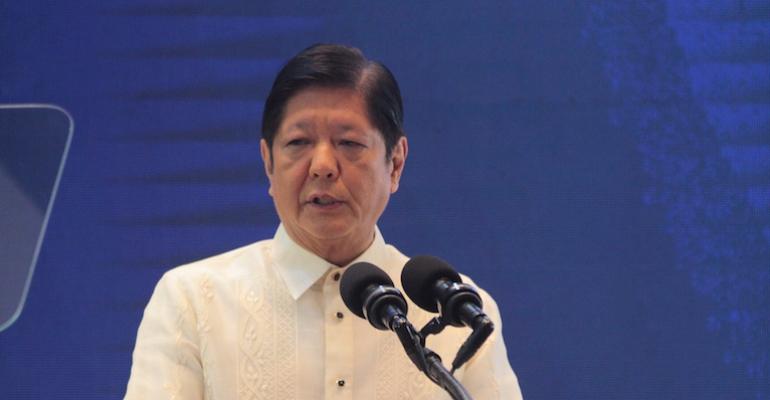The Philippines is the world’s largest supplier of crew to international shipping and speaking to the ‘Shaping the Future of Shipping: Seafarer 2050’ event in Manila the President said they were proud of the title of the seafaring capital of the world and opportunities and wealth it creates for the country.
“I thus insure everyone that this government will continue strengthening maritime related policies and protecting our seafarers and their loved ones,” President Marcos Jr said.
A key challenge facing the shipping industry going forward is decarbonisation and having crew training to operate alternative fuels such as methanol and ammonia safely.
The summit organised by the International Chamber of Shipping (ICS),the International Transport Workers Federations (ITF) and the International Maritime Employers’ Council Ltd. (IMEC) with the Filipino Shipowners Association (FSA), bringing together shipowners, employers, government and unions.
“Now we find ourselves at a turning point for this very crucial sector. In recent years the entire transportation industry, including shipping of course, is undergoing a huge transformation marked by the coming of new and sustainable fuels, as well as an increasing deployment of digitisation and automation,” President Marcos Jr said.
“A central part of this change necessarily includes investing in a highly qualified and well-trained workforce that will build, maintain, and man these shipping vessels and sail towards other opportunities.”
He pledged that the Philippines authorities would work with the industry to provide the training for its seafarers required.
“As President, I reiterate my directive to the Maritime Industry Authority and the Commission on Higher Education to work closely with the shipping industry on the upskilling and reskilling of Filipino seafarers to prepare them for the shift of ocean-going vessels from using conventional fuel sources to green ammonia between 2030 and 2050,” he said.
He also called for cross industry support in these efforts. “Moreover, I enjoin national government agencies, multi-layer organisers, and private stakeholders to work together in identifying strategies to ensure the availability of skilled workers to fulfil the requirements of the shipping industry. This is expected to significantly increase by the year 2050.”
President Marcos Jr has taken a keen interest in seafaring issues since taking up office at the end of June last year. He intervened in with the European Maritime Safety Agency (EMSA) to finally resolve long running issues over standards of maritime training in the Philippines and the threat of a ban of Filipino officers serving on European-flagged vessels which had hung over them for 15 years.

